'It's an amazing experience': Former Cork county councillor brings some 'harambee' to Kenya
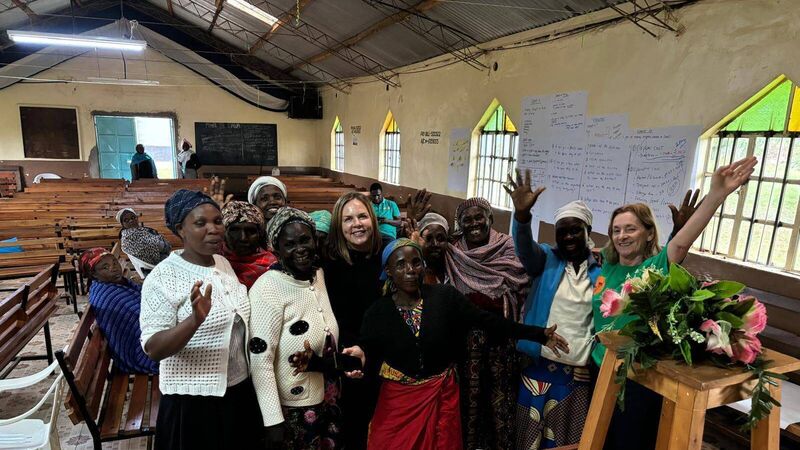
Susan McCarthy from Midleton in Kenya on the Harambee organised by Brighter Communities Worldwide.
After Susan McCarthy finished her time as a Fine Gael councillor in East Cork following the local elections in June, it didn’t take her long to decide on what she would like to do next. In her childhood she had dreamed of being a teacher in a one room school in Africa. Last year she finally realised her dream — in a manner of speaking.
The former councillor spoke to The Echo about a month she spent in East Kenya as part of a Harambee group organised by Brighter Communities Worldwide, a Cobh-based charity working in partnership with local communities for more than two decades. Harambee is the Swahili word for ‘togetherness’ and it is this which guides the work of the Brighter Communities Worldwide charity, a body which began working in Kericho County in Kenya, 23 years ago.
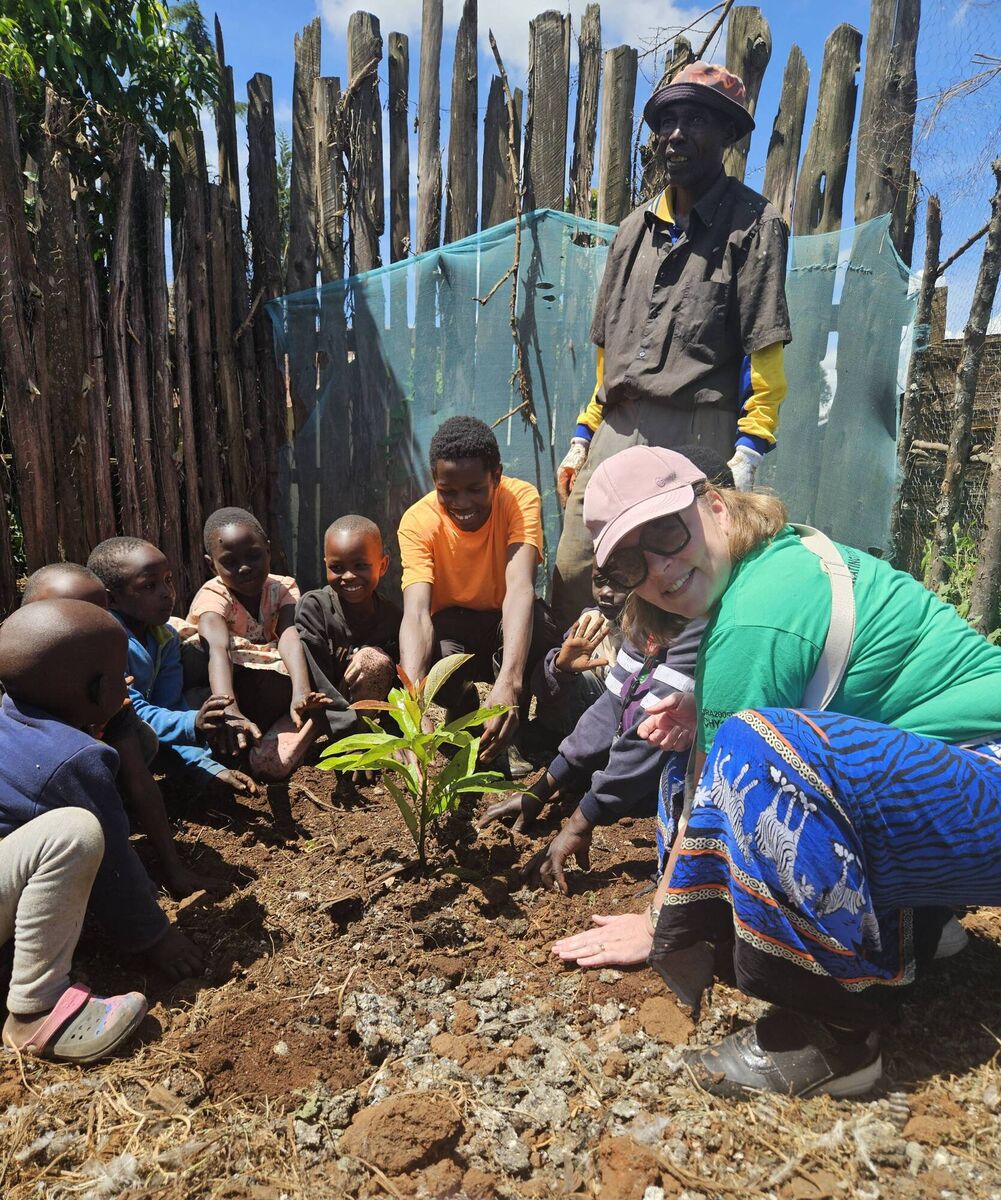
After spending November there, Susan is keen to go back and would wholeheartedly recommend anyone to answer the call being made at present by Brighter Communities Worldwide seeking recruits for this year’s Harambee which will take place in November again.
“Without any doubt in mind I can say I will be back. I think the bonds that you make with the people you work with over there, you become so embedded in life over there. It’s an alternate life to your own but it’s something you will always remember and always have a desire to go back to.
“You don’t have to give your life to it. There were people on it for whom it was a once in a lifetime thing and they benefitted and gained as much they gave...you also benefit more than you think you’re going to benefit from it, it’s an amazing experience.”
Susan said she did wonder how much she was actually contributing while she was in East Kenya as she was only going to be there for a month. “It’s very inspiring for the people out to there to see people coming out to them, into their homes, building a stove and physically working or coming into one of their church halls and sitting down with them and working through different projects.”
She gave details into how one of the projects entailed taking old T-shirts and turning them into reusable underwear that women can use during menstruation.
“These very simple things to us are absolutely life-changing – a lot of them have to stay at home during that time of the month, they don’t have the money to buy pads, they’re the same price over there as over here, it’s beyond their means.
“They have to stay home where they lie with a rag between their legs – you give them the basic materials, a needle, a bar of soap, some old rags and whatever and you give them a pack with all of these in it with instructions and a template.”
Because they now have underwear which they can use when they’re menstruating, they don’t have to miss days at work, which means they will get paid for those days. “This is really vital for us to understand, they will miss out of school every month and will fall behind and then it’s a case of ‘I’m not able to keep up with my schoolwork anyway, I may as well go and earn for my family’.
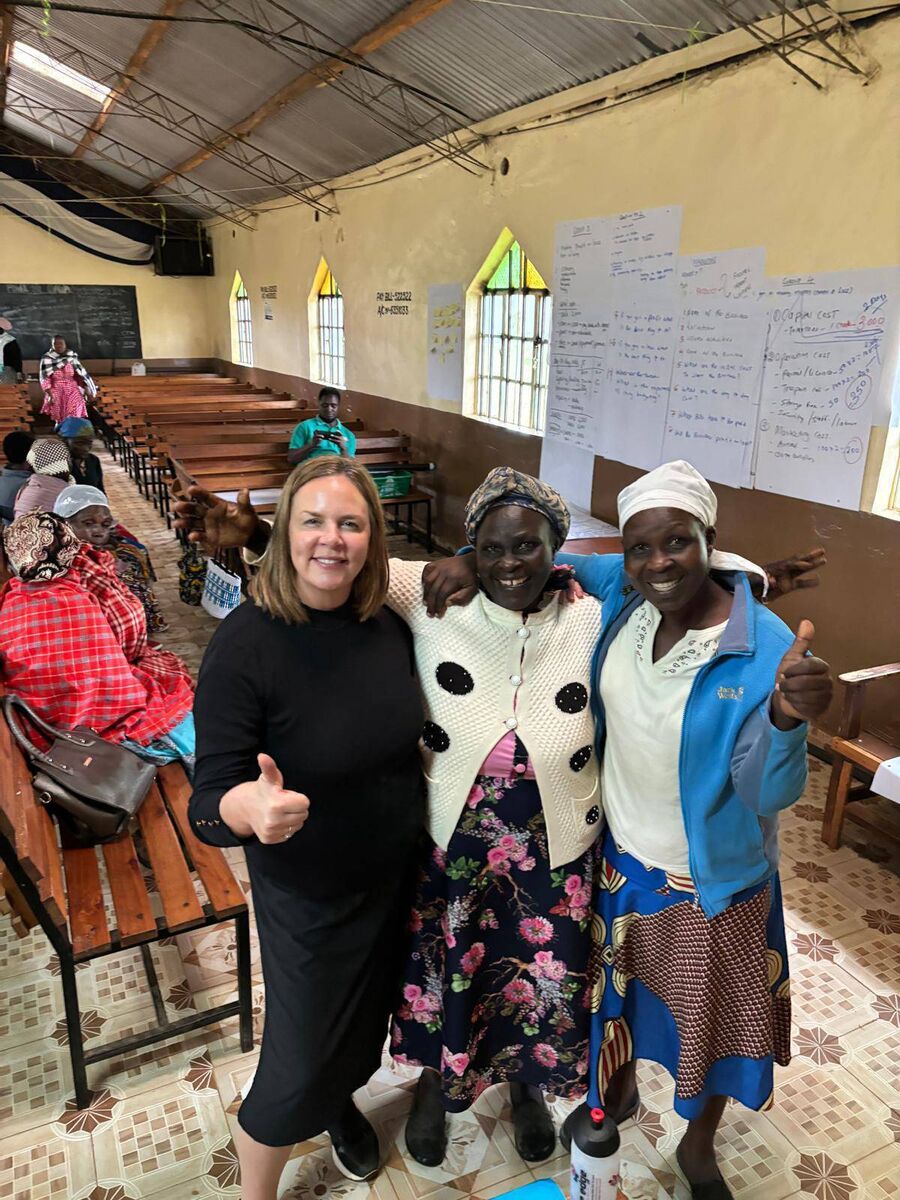
“They miss out on educational opportunities because of it, things as simple as that, it’s a chain reaction.
“By ensuring that they have the very basic materials they need and the knowhow, it opens up the opportunity to stay in schools.”
According to Susan, these are people who are “well educated, culturally aware and who may not have the skills or diversification of farming we have here – it’s just a different culture, not that they’re different to us”.
She described those she met as eager and willing to learn and willing to get themselves out of poverty.
“They’re not feeling sorry for themselves, they do with what they have and very small things make a big difference.
“There’s an awful lot of fundraising being done in health by BCW, they’re opening up a trauma wing in the hospital.”
Another huge issue is the quality of water as water borne diseases can have a devastating impact. “Getting clean water to them is hugely beneficial in terms of health,” she said. “So many water borne diseases cause major health issues in these communities and getting safe clean water to them whether it’s as simple as a bore hole or going further and developing a water treatment system for a whole village.
“Either way they make a big difference in these communities.”
The time she spent in Africa, albeit short, has made an impact on Susan.
“I didn’t expect to be so emotional on my return home, I really didn’t, but my experience in Kenya was truly incredible,” she said.
“It has given me a healthier perspective on life and an even greater understanding that accumulating goods is not the key to happiness in life.
“Obviously, you do revert back to the western way of life, but personally speaking I now find that I am more mindful about what I purchase for example, and have definitely taken a step back. I saw how people can live on very, very little and that is both humbling and hugely inspiring.
“The people might not have much, but what they do have, they wish to share with you. I remember we would bring packed lunches every day going out to the communities on the various programmes, and though you would tell them you have your own food, they would insist that you join them and have some ‘ugali’ for lunch. And you were never far away from a mug of chai with a mendazi as a treat. The people made the experience for me. They are wonderful people; so incredibly dignified, gracious and giving.
“I would really encourage people to go and volunteer, even for a short time as I did. Brighter Communities Worldwide is a small charity but with a large impact, literally, and it is wonderful to see how real lasting change is not only possible but attainable. I would say that going there has enriched my life and I can’t wait to go back. I would go back tomorrow in a heartbeat.”
The Brighter Communities Worldwide NGO has been a catalyst for development in Kenya – kick starting opportunities to encourage people, partnerships and what they describe as true develop can flourish.
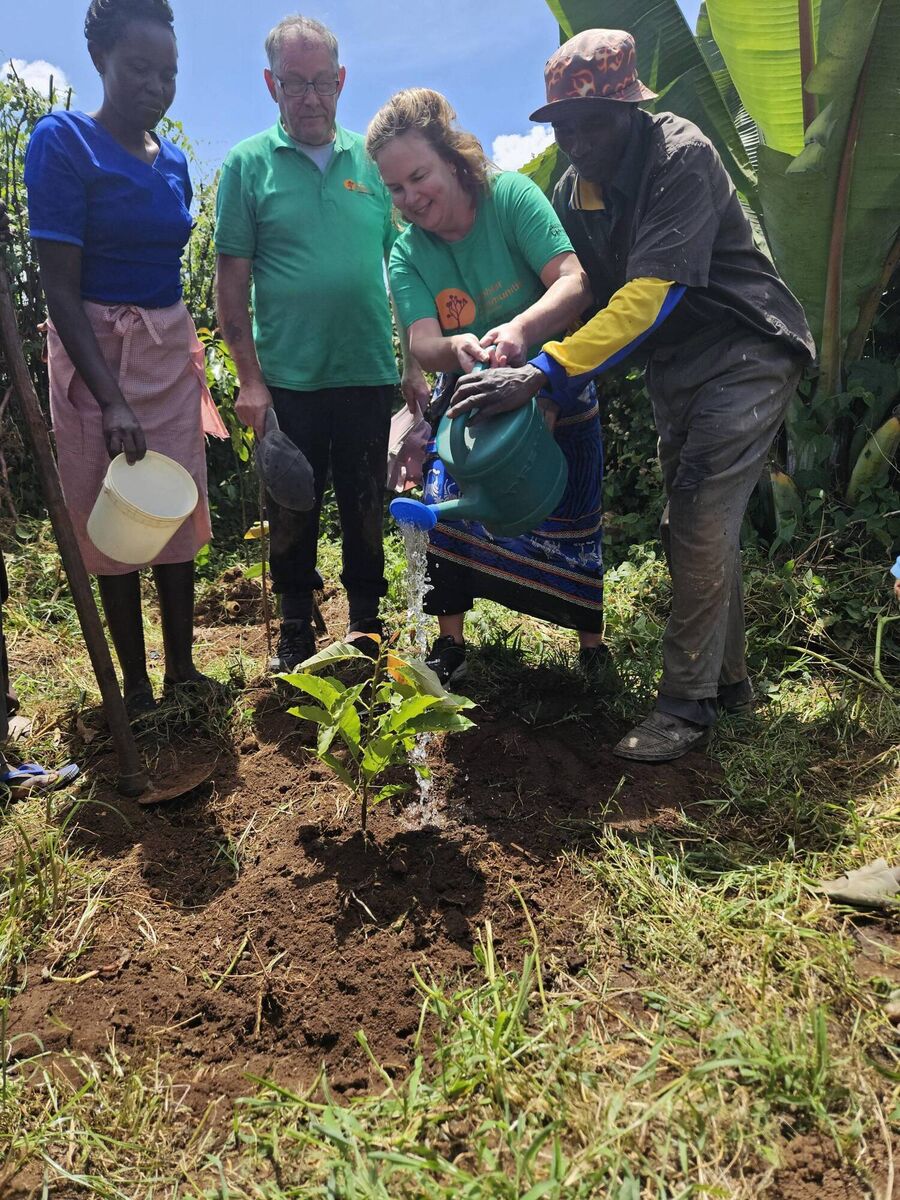
The concept of partnership is at the heart of the charity’s work as it seeks to empower communities to realise their dreams of personal and economic freedom through the provision of support and friendship.
This collaborative approach is in evidence in the Brighter Communities Worldwide’ Health, Education, Economic Empowerment and Water Programmes.
Over the decades since its foundation in the early years of this millennium, it has undertaken healthcare projects with a particular focus on reproductive health for girls.
It has also taken on projects to provide clean water in villages and freeing up girls from walking long distances to fetch water daily, as well as building toilet facilities at schools, which helps to keep girls in school.
The charity’s Girls for Girls programme helps to educate girls about menstrual health, income generation and the importance of staying at school every day of the month.
The charity also provides educational bursaries to keep girls in school and runs an alternative Rites of Passage programme which also helps in reducing the incidence of female genital mutilation.



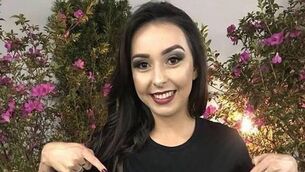



 App?
App?


